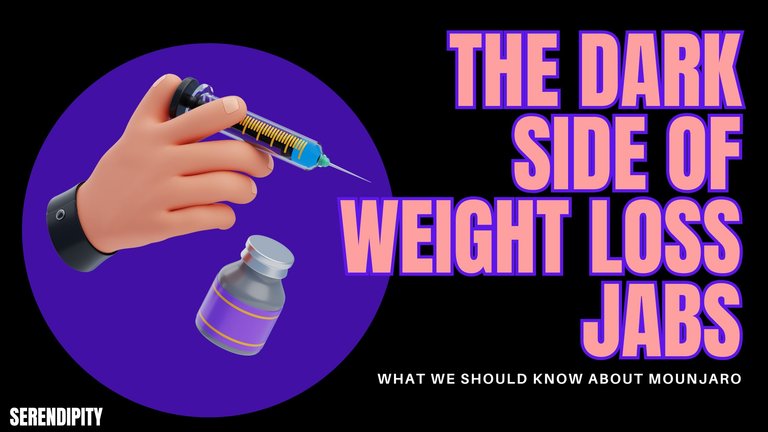
In the chase for weight loss, the arrival of drugs like Mounjaro—a new kind of "weight loss jab"—has been celebrated as revolutionary. It's marketed as an injectable miracle for weight loss, especially for people struggling with obesity. It has even gathered a nick name among people in the UK as the "king-kong jab".
But in a tragic turn of events, Susan McGowan, a 58-year-old NHS bed manager, may have become the first person to lose her life due side effects from the drug. Susan had been healthy, not on any other medication, and reportedly carried just a “wee bit of extra weight.” But after two low-dose injections of Mounjaro, she developed severe stomach pain and sickness, eventually passing away from multiple organ failure and septic shock, with Mounjaro noted on her death certificate as a contributing factor.
This heart-breaking story should make us pause and consider what we really know about these drugs—and about weight loss in general.
Weight Loss Injections: What's the Big Deal?
Mounjaro, like other GLP-1 agonists, works by mimicking hunger-regulating hormones, specifically GLP-1, to reduce appetite and slow digestion. This makes you feel fuller longer, theoretically leading to weight loss over time. Semaglutide (under brand names like Wegovy and Ozempic) is another in the same family, and it's seen its share of safety issues as well.
But is reducing our hunger chemically the only answer to weight loss? With these drugs now available at many pharmacies (and sometimes self-prescribed via online consultations), it feels like the risks are being obscured by the promises.
The Pressure of the Quick Fix
In our society, the pressure to be thin or lose weight quickly can sometimes lead people to chase rapid solutions without fully weighing the potential consequences. The idea of taking a "quick jab" rather than facing years of hard work with diet and exercise is undoubtedly appealing. Yet, it is getting clearer that with weight loss, the hard way is more beneficial in the long run than taking the short cut there.
Of course, there are legitimate uses for these drugs. For people with*** severe obesity or type 2 diabetes***, they can make a real difference. However, the idea of injecting a drug with potential life-threatening side effects is serious—and it’s not always emphasized enough by those pushing these treatments as safe.
A Call for Balance: The Role of Diet and Exercise
We’ve known for years that diet and exercise remain the foundation of healthy weight management. Yes, they’re harder to sustain than a jab, but their benefits extend far beyond what a single shot could ever provide. Real weight loss doesn’t happen overnight or through magic injections. It’s about creating a balance that keeps us healthy physically and mentally, and that often requires lifestyle changes that can take time to fully establish.
For those struggling with weight, incorporating more whole foods, regular exercise, and perhaps support from a nutritionist or therapist can make all the difference. Rather than seeking a quick fix, this approach has the potential to prevent the kind of heartbreak that Susan’s family is experiencing.
Rethinking The "Miracle" Weight Loss Drugs
When drugs like Mounjaro hit the market with promises of miraculous results, it’s essential to remember that they’re not a free pass. All medications come with risks, and for some people, those risks may be too high. The MHRA (Medicines and Healthcare products Regulatory Agency) insists that patient safety is paramount and that drugs like Mounjaro have passed strict safety measures. However, the reality is that these drugs affect each person differently. While they may be lifesaving for some, they can also present unexpected risks, as Susan’s case highlights.
Moving Forward: What’s the Right Path?
If you’re considering weight loss drugs, it’s crucial to do your research, ask questions, and look closely at the fine print. Consulting a doctor who knows your health history and lifestyle goals can help you make an informed decision, but it’s equally vital to keep an open mind about alternative, less risky methods for managing weight.
For many, achieving a healthy weight isn’t a straight path, and it doesn’t come with one-size-fits-all solutions. It’s a journey—sometimes slow and challenging but ultimately more sustainable and rewarding than any quick jab could offer.
So before you reach for the needle, take a moment to consider: What’s the healthiest way for you to reach your goals? What will give you not only a healthier body but also peace of mind? In a world full of “miracle solutions,” it’s often the most basic habits—like good food, regular exercise, and realistic goals—that end up being the most powerful.
Thank you for reading. Check out my blog for more!

